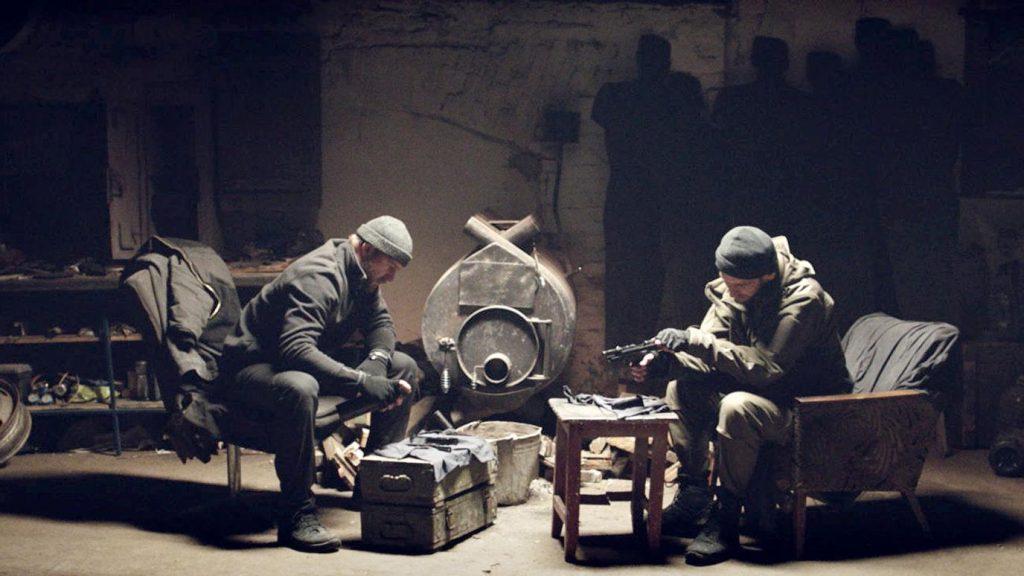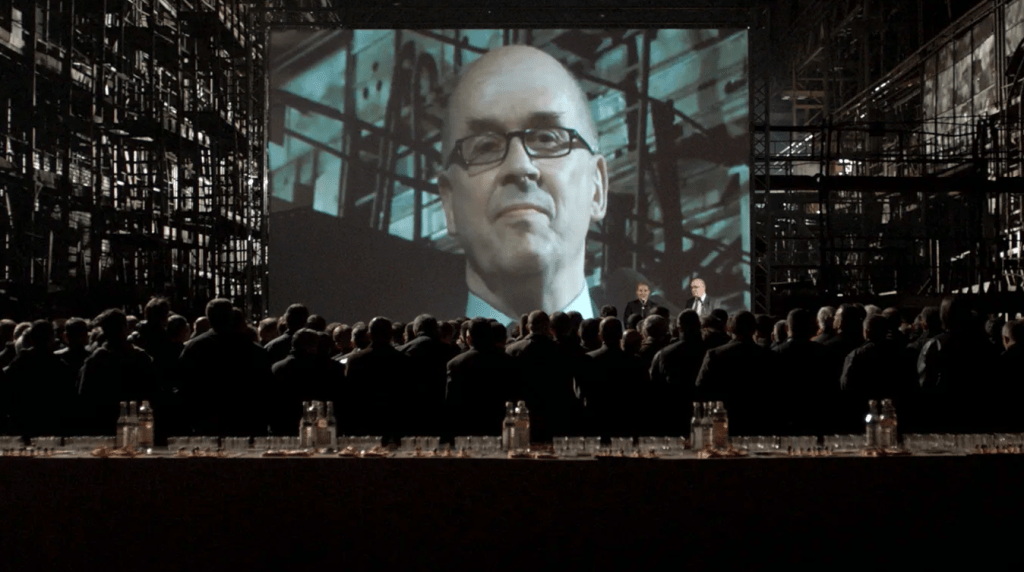“If we don’t resist the Russian invasion,” Valentyn Vasyanovych told Leonardo Goi, “Ukraine will disappear as an independent state, and the countries of the former Socialist Bloc will be next.” The 50-year-old Ukrainian film director is in Kyiv right now, doing just that, while the Museum of the Moving Image is screening a retrospective of his amazing work.
His latest feature, “Reflection,” was shown as part of this year’s MOMI First Look Festival and I have already reviewed it here. Set in 2014 during the war with Russian separatists in Eastern Ukraine, this was my first exposure to the work of this brilliant artist. In addition to Vasyanovych’s previous two features, MOMI is showing an early short and documentary he directed.
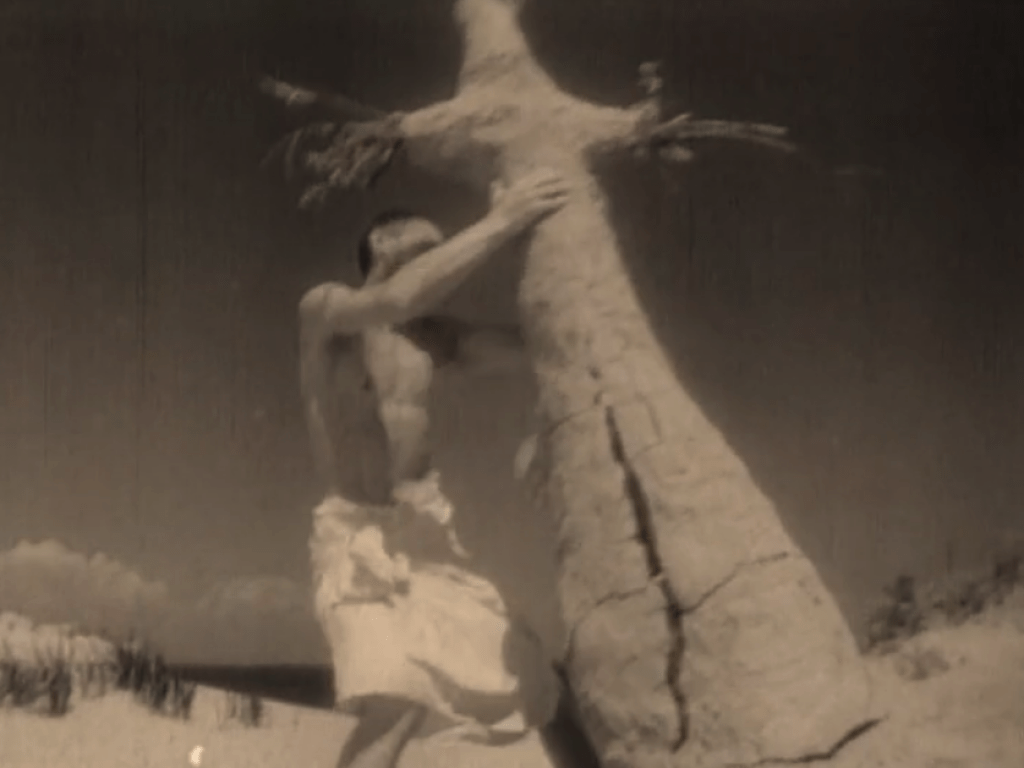
“Counterclockwise (Against the Sun)” is a twenty minute 2004 short shot on 16mm black-and-white film and tinted gold to suggest early silent films. The sound is non-synchronous. A potter travels to a small island to build a sculpture out of clay. On the soundtrack we hear: him talk about his work (he spins his pottery wheel counter-clockwise, or “against the sun”), a young woman talking about poetry, an older one complaining about his dog’s constant barking. This is a charming experimental film about creativity but it doesn’t suggest much of what would become Vasyanovych’s mature style. The documentary on the program does.
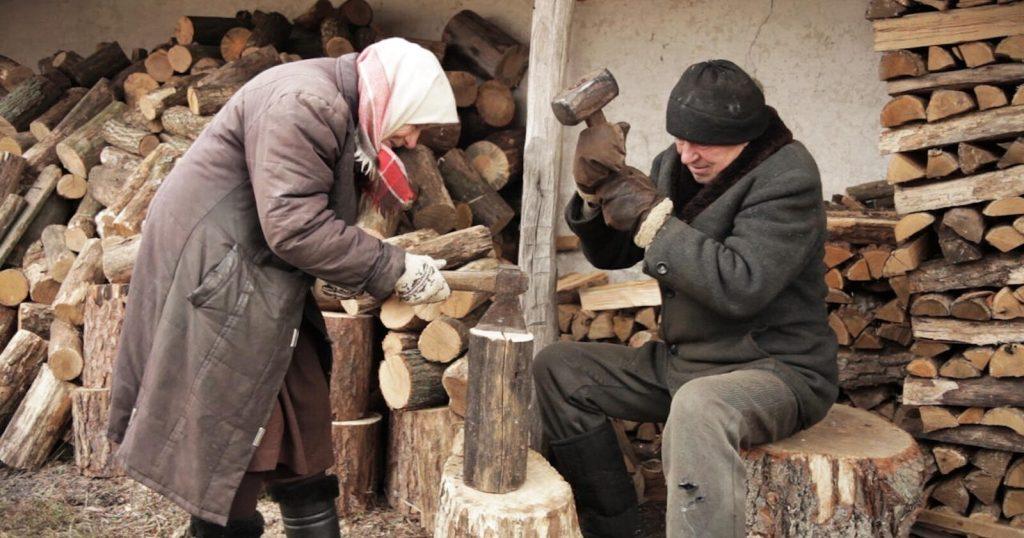
For this 2014 documentary Vasyanovych filmed his 82-year-old relative Maria, who lives on a farm in Northern Ukraine with her son Sashko, who has been blinded by diabetes. Their lives are filled with the hard work of farming. The stooped-over Maria struggles to chop wood with a small, unsharpened axe. Her son uses the limited vision he still has to do repairs. She sells her cow milk to a “milk float truck” and fills her wheelbarrow with so much hay you wonder if she can wheel it to the cows. She kills a chicken with such poor aim and limited strength that the bird suffers needlessly while dying. A neighbor is hired to drag Sashko’s coffin from a barn so he can paint it before he dies. The couple often bicker while working together yet they are inseparable. The 61-minute film is shot in slow but engrossing takes, framed with exquisite artistry and reverence for the details of the labor of humans interacting with land and animals. “Crepescule” means twilight, a reference to the dying light Sashko sees.
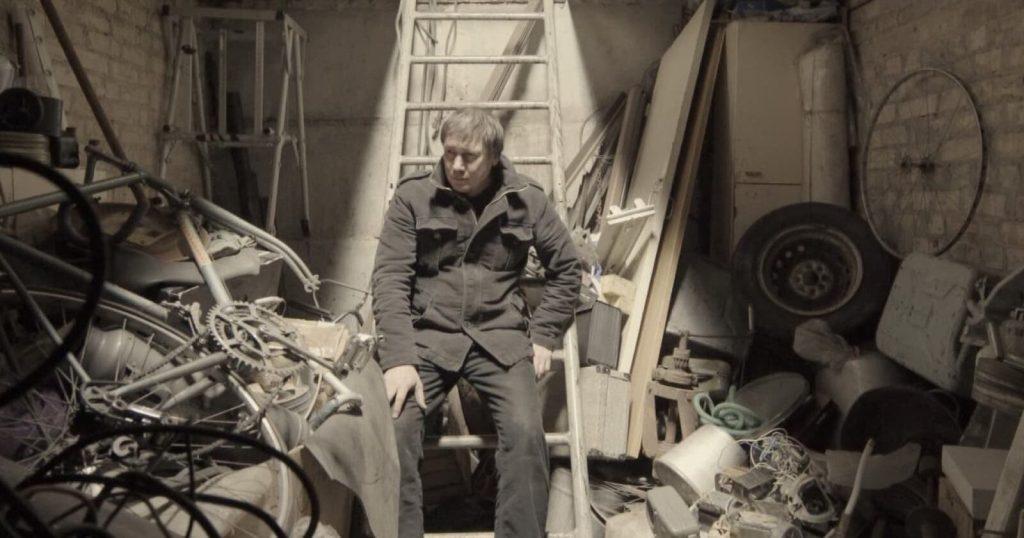
“Video black level is defined as the level of brightness at the darkest (black) part of a visual image or the level of brightness at which no light is emitted from a screen, resulting in a pure black screen.”
—Wikipedia
In Vasyanovych’s first feature film, “Black Level” (2017, 91 minutes), we see the formal strategy he will use in all three of his features so far. Most of the scenes are filmed in master shot, with no cutaways, the camera fixed in position. The shots are long and painterly, inviting viewers to study every inch of the screen. The movements of the characters and the objects they interact with are rich with possible meanings. In this film he also makes use of a startling convention: no dialogue! Besides making the film more universal (no need for subtitles), this gives viewers more work to do but also provides great rewards as meanings emerge visually. (Himself a former photographer, Vasyanovych also shot and edited all of his features to date.)
For example, in one scene the main character Kostya (Konstantin Mohnach) is struggling to dig a hole in the frozen ground to bury a small box. When he finally achieves this, he whistles something that makes us realize the heavy sadness connected to his errand.
Kostya is a middle-aged photographer in a Ukraine city whose life seems to be unraveling. He lives with his wheelchair-bound father and a cat. Wedding couples are his main clients. Kostya sometimes positions them in his studio in front of ridiculously huge fake white roses. He has a storage unit with a basement full of objects he sometimes retrieves as if looking for his own “rosebud” in his mini-version of Kane’s warehouse. The unit also serves as a place for his trysts; he drives his car into it and has sex in the car. His only other activity is his rock-climbing hobby. He seems to be patiently struggling to pull himself up throughout the film, never complaining, agreably shooting the wedding photographs of a couple that includes an ex-lover (Kateryna Molchanova), emotionally unavailable except for an outburst at his 50th birthday party.
“Black Level” was a critical success and was selected as the Ukrainian entry for the Best Foreign Language Film Oscar that year. His next film “Atlantis” (2019, 108 mins) would receive the same honor two years later.
“Atlantis” is set in 2025 “after the defeat of Russia!” Sergey (Andriy Rymaruk) is a former soldier suffering deeply from PTSD. After losing his job at a steel plant, he finds work driving a water truck in an unidentified part of Ukraine (it was filmed in and near Mariupol) that is so bleak and devastated by the war that, an eco-worker tells him, it will be decades before it is inhabitable again. He finds some relief from the drudgery and loneliness by volunteering for a charity organization which is exhuming victims of the war who were left in mass graves. Though it’s a gruesome process, it gives Sergey a sense of purpose and the possibility of love with a co-worker, Katya (Liudmyla Bileka). Amazingly, no actors were used in this film–they are all ex-soldiers and Katya is played by an actual paramedic.
In his second feature Vasyanovych has perfected his style. Every shot is stunning! One example will demonstrate the beauty behind his formal rigor. Sergey has driven his water truck to a place where a huge steam shovel claw has been abandoned. The shot last over seven minutes: we see him pull the water hose to the claw, fill it with water, build a fire under the claw and turn it into an impromptu hot tub in which he finds a temporary respite from all the death and drudgery of his days.
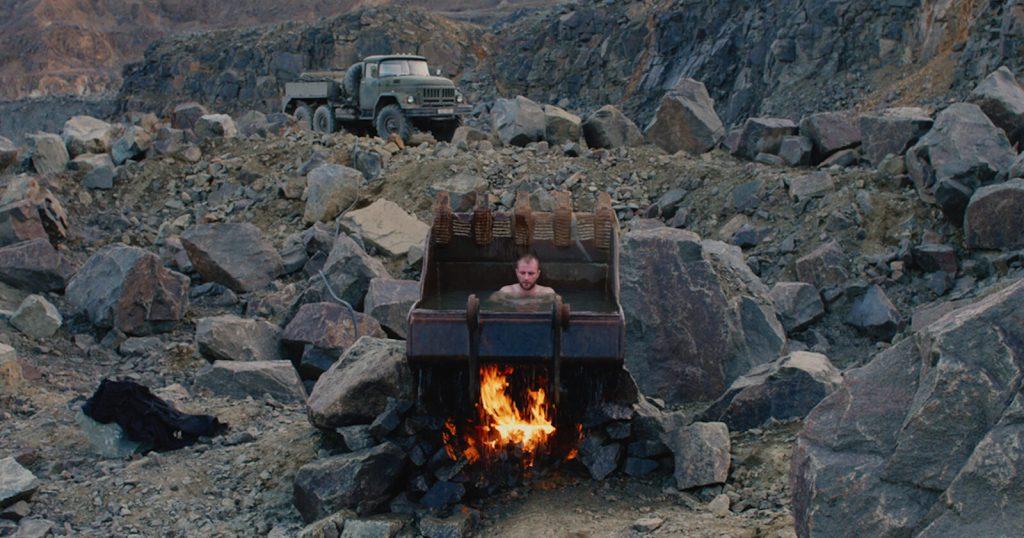
The film opens and closes with shots filmed with a thermographic camera (one of which is used for the film’s poster), an unusual technique that suggests the role temperature plays in this unique masterpiece.
Vasyanovych’s 2021 film “Reflection,” also a masterpiece, is being re-screened for this retrospective of a brilliant film director unfamiliar to many U.S. viewers. Let’s hope he survives the brutal war in his country to make more films. Let’s pray for the people of Ukraine.
The series runs between Friday, March 25–Sunday, March 27. Go here for tickets. And read this excellent recent interview with Vasyanovych on the MOMI blog, “Reverse Shot.”
